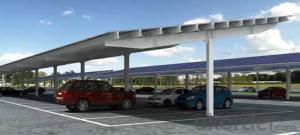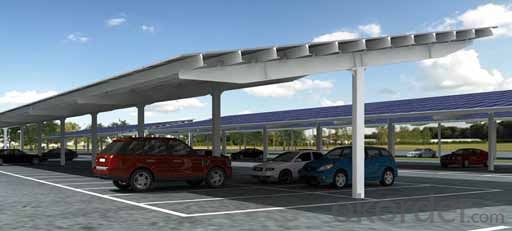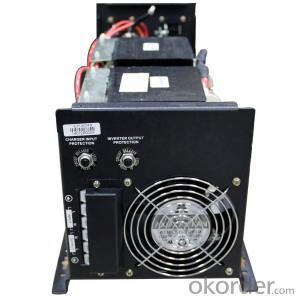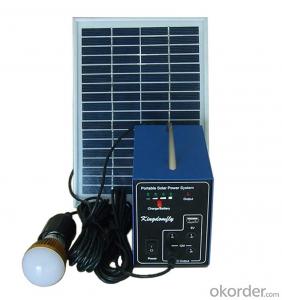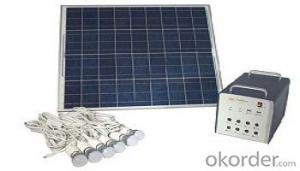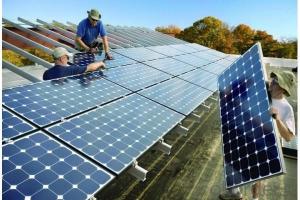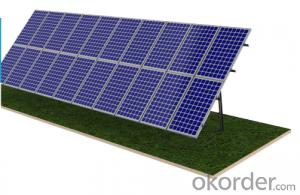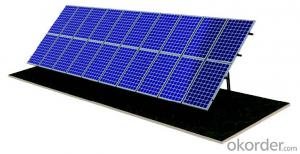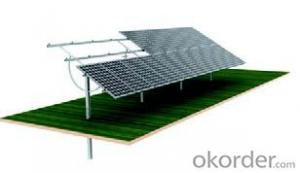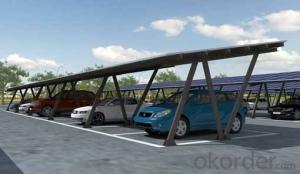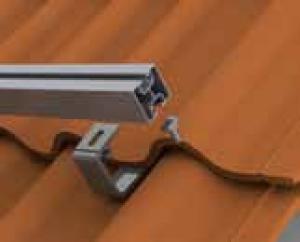Solar Energy Systems Orange - Solar Carport System Single Pile
- Loading Port:
- China Main Port
- Payment Terms:
- TT OR LC
- Min Order Qty:
- -
- Supply Capability:
- -
OKorder Service Pledge
Quality Product, Order Online Tracking, Timely Delivery
OKorder Financial Service
Credit Rating, Credit Services, Credit Purchasing
You Might Also Like
Product Features
• No location limitation
• Simple structure, easy & quick installation
• Use standard components, low maintenance cost
• Easy to be packaged, minimized transportation cost
• Removable & reusable
• With waterproof & non-water proof solutions for choice
• Customization available
- Q: Can solar energy systems be used in areas with limited roof space due to chimneys or vents?
- Yes, solar energy systems can still be used in areas with limited roof space due to chimneys or vents. In such cases, alternative installation options like ground-mounted solar panels, solar canopies, or solar pergolas can be considered. These options allow for the utilization of unused land or outdoor spaces to generate solar energy, making it possible to harness solar power even in areas with limited roof space.
- Q: Can solar energy systems be used for powering electric plane systems?
- Yes, solar energy systems can be used for powering electric plane systems. Solar panels can be mounted on the surface of the plane to capture sunlight and convert it into electricity. This electricity can then be used to power various systems on the plane, such as its propulsion, navigation, and communication systems. However, it is important to note that currently, solar energy alone may not be sufficient to power an entire electric plane during flight, as planes require significant amounts of energy. Nevertheless, solar energy can be a valuable supplement to reduce fuel consumption and emissions in electric planes.
- Q: Can solar energy systems be used for powering electric vehicle sharing programs?
- Yes, solar energy systems can be used to power electric vehicle sharing programs. Solar energy is a renewable and sustainable source of power, making it an ideal solution for reducing carbon emissions and promoting clean transportation. By installing solar panels and utilizing the energy they produce, electric vehicle sharing programs can operate on clean and green energy. This eliminates the reliance on fossil fuels and reduces the overall environmental impact of the program. Additionally, solar energy systems can provide a reliable and cost-effective source of power for charging electric vehicles, making it an efficient and practical solution for powering these programs.
- Q: Can solar energy systems be integrated with existing electrical systems?
- Yes, solar energy systems can be integrated with existing electrical systems. This is commonly done by installing photovoltaic panels on rooftops or in open areas, which convert sunlight into electricity. The generated solar power can then be used alongside electricity from the traditional grid to meet the energy needs of homes, businesses, or even entire communities. This integration involves the use of inverters and other components to convert and synchronize the solar power with the existing electrical system, allowing for a seamless and efficient integration of renewable energy.
- Q: How much maintenance is required for a solar energy system?
- Solar energy systems typically require minimal maintenance. Regular cleaning of the solar panels to remove dust and debris is recommended to ensure optimal performance. Additionally, checking the system's components, such as inverters and wiring, at least once a year is advisable. Overall, solar energy systems are designed to be durable and reliable, requiring little ongoing maintenance.
- Q: Can solar energy systems be used in areas with limited access to food?
- Yes, solar energy systems can be used in areas with limited access to food. Solar energy systems can provide a sustainable and renewable source of electricity, which can be used to power various agricultural activities such as irrigation, crop drying, and food processing. Additionally, solar energy can be used to power refrigeration systems, enabling the storage and preservation of food in areas with unreliable or no access to traditional energy sources. Therefore, solar energy systems can play a crucial role in improving food security and enhancing agricultural productivity in areas with limited access to food.
- Q: Can solar energy systems be used in powering music studios or recording studios?
- Yes, solar energy systems can definitely be used to power music studios or recording studios. Solar power systems are a clean and renewable energy source that can provide a reliable and cost-effective solution for powering various electrical equipment, including the high energy-consuming equipment found in music studios. Solar panels can be installed on the roof or any other suitable area of the studio building to harness sunlight and convert it into electricity. This electricity can then be used to power a wide range of equipment such as amplifiers, mixers, microphones, computers, lighting, and air conditioning systems. The size of the solar power system required will depend on the energy needs of the studio. By analyzing the energy consumption patterns and demands of the studio, solar energy experts can design and install a customized solar power system to meet the specific requirements of the studio. One of the advantages of using solar energy in music studios is the potential for significant cost savings. Traditional electricity sources, especially in commercial settings, can be quite expensive. By generating their own electricity through solar power, studios can reduce their reliance on the grid and potentially lower their electricity bills. Additionally, solar energy is a sustainable and environmentally friendly option. Music studios often consume a large amount of electricity, and using solar power can help reduce their carbon footprint and contribute to a greener future. It is worth noting that solar energy systems can also be combined with battery storage systems. This allows music studios to store excess energy produced during the day and use it during times of low solar generation or at night. This further enhances the reliability and independence of the solar power system. In conclusion, solar energy systems can be effectively used to power music studios or recording studios. They offer a clean, renewable, and cost-effective solution that can meet the energy demands of these facilities while reducing their environmental impact.
- Q: Can solar energy systems be used for powering electric vehicle solar charging parking lots?
- Yes, solar energy systems can be used to power electric vehicle solar charging parking lots. Solar panels can be installed on the parking lot's canopy or on nearby structures to generate electricity from sunlight. This clean and renewable energy can then be utilized to charge electric vehicles parked in the lot, reducing dependence on non-renewable energy sources and lowering carbon emissions associated with transportation.
- Q: Can solar energy systems be used for powering remote weather stations?
- Certainly, remote weather stations can indeed utilize solar energy systems for power generation. Solar energy proves to be an eco-friendly and renewable power source, which can be effectively harnessed in isolated regions where it may not be feasible or cost-effective to connect to the electrical grid. The operation of weather stations necessitates a consistent supply of electricity to support their sensors, data loggers, communication devices, and other equipment. The installation of solar panels at these stations allows the capture of sunlight and its conversion into electricity through photovoltaic technology. This electricity can then be stored in batteries, thereby offering a dependable and sustainable power supply for the weather station, even during times of cloudy or nighttime conditions. Furthermore, solar energy systems entail minimal maintenance and possess a long lifespan, rendering them ideally suited for remote locations where regular maintenance visits may pose challenges. In general, the utilization of solar energy systems to power remote weather stations presents a practical and environmentally friendly solution that ensures the uninterrupted operation of these crucial monitoring facilities.
- Q: What is the impact of lightning on the performance of solar panels?
- The performance of solar panels can be significantly affected by lightning, although it is relatively uncommon. When lightning strikes, it can cause physical damage to the solar panels, such as breaking the glass or causing harm to the wiring. Consequently, this damage can result in a decrease or even a complete loss of power generation from the affected panel. Furthermore, lightning can also create electrical surges that may harm the inverter, which is a vital component responsible for converting the direct current (DC) electricity produced by the panels into alternating current (AC) electricity for usage in homes or businesses. If the inverter is harmed, it can lead to a complete shutdown of the solar panel system until necessary repairs or replacements are carried out. To reduce the impact of lightning on solar panels, there are various protective measures that can be taken. One common approach is to install a lightning protection system that includes lightning rods or conductive pathways to safely direct the electrical discharge into the ground. This method helps to prevent lightning strikes from directly hitting the solar panels, thus reducing the risk of damage. Additionally, surge protectors can be installed to safeguard the inverter and other sensitive electronic components of the solar panel system. These surge protectors work by redirecting excessive electrical energy from lightning strikes away from the system, thereby safeguarding it from potential harm. Although lightning strikes can pose a threat to the performance of solar panels, it is important to note that modern solar panel systems are generally designed to withstand severe weather conditions, including lightning. Manufacturers often subject their panels to rigorous testing to ensure their durability and resistance to lightning strikes. Overall, while the impact of lightning on solar panels can be disruptive and expensive, implementing appropriate protective measures can help minimize the risk and ensure the long-term performance and reliability of the solar panel system.
Send your message to us
Solar Energy Systems Orange - Solar Carport System Single Pile
- Loading Port:
- China Main Port
- Payment Terms:
- TT OR LC
- Min Order Qty:
- -
- Supply Capability:
- -
OKorder Service Pledge
Quality Product, Order Online Tracking, Timely Delivery
OKorder Financial Service
Credit Rating, Credit Services, Credit Purchasing
Similar products
Hot products
Hot Searches
Related keywords
